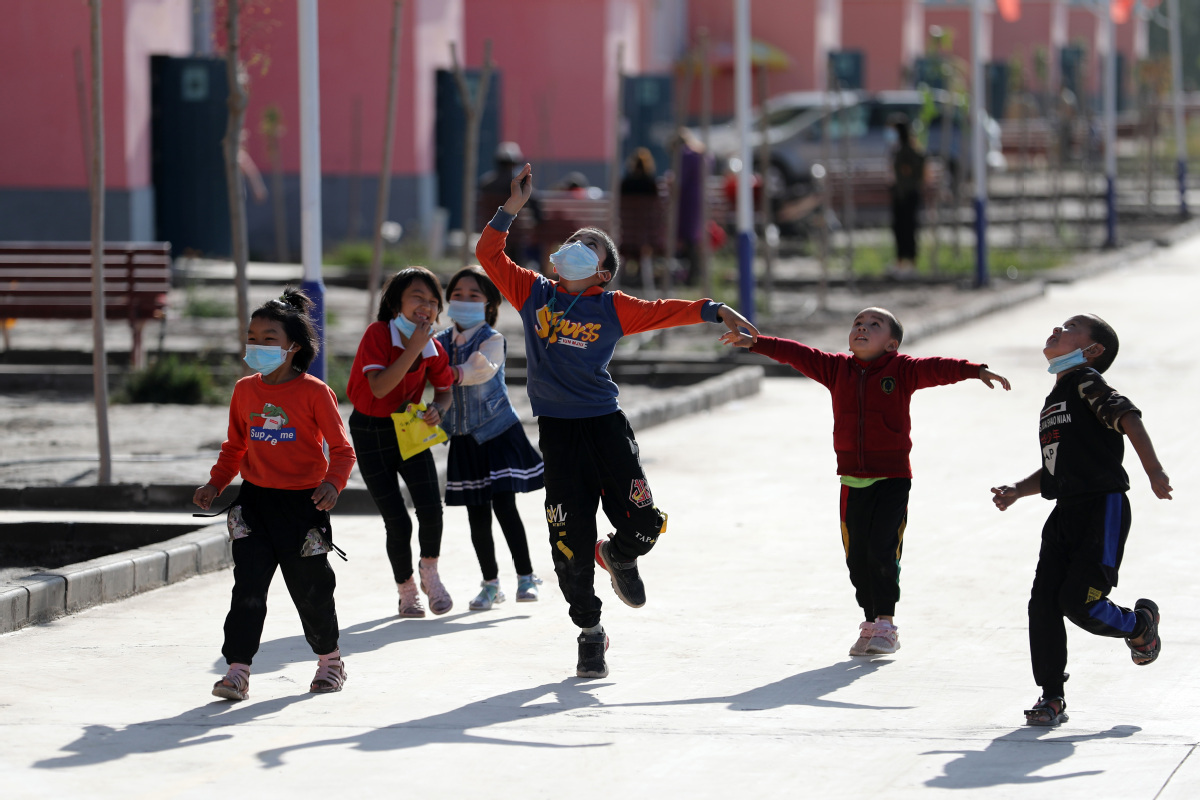Truth and fabrication on Xinjiang's population change
chinadaily.com.cn | Updated: 2021-02-05 11:24

Recently, the population issue concerning Xinjiang Uyghur autonomous regionhas attracted much attention. Adrian Zenz, a German anti-China scholar, in particular, quoted data from unknown sources and made up his research report "Sterilizations, Intrauterine Devices and Compulsory Birth Control: the Chinese Communist Party's Campaign to Suppress the Birth Rate of Uyghurs in Xinjiang". The "report" falsely claims that "the natural population growth in Xinjiang has dropped sharply", and slanders that there is so-called "forced sterilization" in Xinjiang.
The truth is that Zenz makes a living by fabricating Xinjiang-related stories against China. He is a senior fellow at the Victims of Communism Memorial Foundation, a far right-wing organization established in 1983.
Zenz' "report" is full of fabricated facts and falsified data. He claims that in 2018, at least 80 percent of new surgeries of intrauterine contraceptive device implants in China were performed in Xinjiang. In fact, according to the China Health Statistics Yearbook 2019 published by the National Health Commission, the number of such surgeries in Xinjiang in 2018 was 328,475, and the nationwide number was 3,774,318, which means that the number of Xinjiang's new IUD placement surgeries accounted for only 8.7 percent of the nation's total, and Zenz number is far from accurate.
Decline in the birthrate and natural population growth rate in the Xinjiang Uygur autonomous region in 2018 resulted from the eradication of religious extremism, a report released on Jan 7 said.
The report on population change in Xinjiang published by the Xinjiang Development Research Center said extremism had incited people to resist family planning and its eradication had given Uygur women more autonomy when deciding whether to have children.
The changes were not caused by "forced sterilization" of the Uygur population, as repeatedly claimed by some Western scholars and politicians, it said.
For a period of time, the penetration of religious extremism made implementing family planning policy in southern Xinjiang, including Kashgar and Hotan prefectures, particularly difficult, the research center's report said. That had led to rapid population growth in those areas as some extremists incited locals to resist family planning policy, resulting in the prevalence of early marriage and bigamy, and frequent unplanned births.
In the process of eradicating extremism, the minds of Uygur women were emancipated and gender equality and reproductive health were promoted, making them no longer baby-making machines, it said. Women have since been striving to become healthy, confident and independent.
Family planning policies have been fully implemented in the region in accordance with the law, the report said.
In 2017, Xinjiang revised its Regulations on Population and Family Planning, stipulating that all ethnic groups should implement a unified family planning policy allowing couples in urban areas to have two children, and those in rural areas three.
The research center's report said safe, effective and appropriate contraceptive measures are now available to couples of childbearing age in Xinjiang, and their personal decisions on whether to use those measures-which include tubal ligation and the insertion of intrauterine devices-are fully respected. As a result, the birthrate in Xinjiang fell from 1.6 percent in 2017 to 1 percent in 2018 and the natural population growth rate declined from 1.1 percent to 0.6 percent.
The Uygur population grew from 10.2 million in 2010 to 12.7 million in 2018, an increase of more than 25 percent, while the population of Han people in the region increased by just 2 percent to 9 million over the same period.
The report said an increasing number of people in southern Xinjiang were deciding to marry and have children later in life, seeing the benefits of fewer but better births, and the change was due more to personal choice than government policy.
























